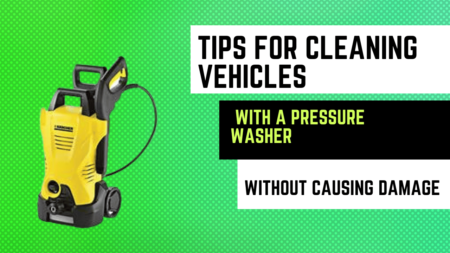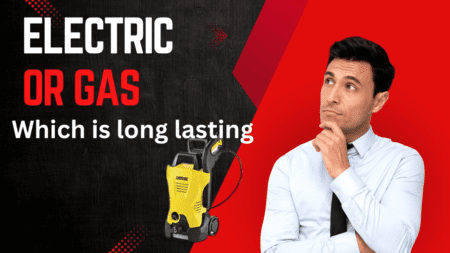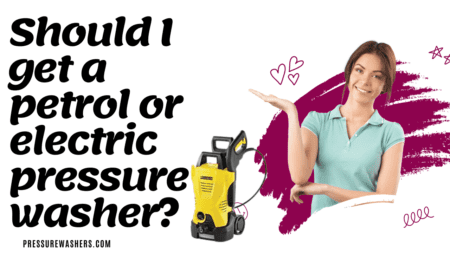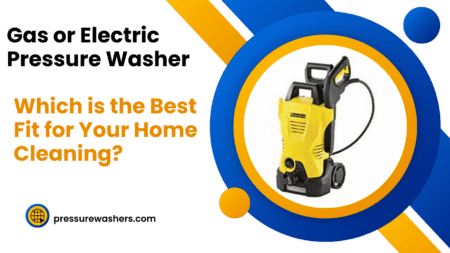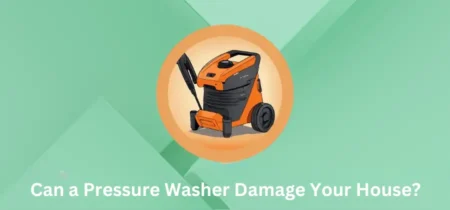
Electric pressure washers are a popular choice for cleaning outdoor surfaces such as patios, decks, and driveways. They are easy to use, efficient, and require less maintenance than gas-powered pressure washers. However, like any other machine, electric pressure washers can overheat if not used properly. In this article, we will discuss the causes of electric pressure washer overheating and how to prevent it.
Electric pressure washers provide high-powered cleaning for home exteriors, vehicles, decks, and other surfaces. Their motors generate up to 2000 PSI to blast away caked-on dirt and debris. But like any motorized tool, improper use or lack of maintenance can cause electric pressure washers to overheat. Overheating risks damage to internal components and can shorten the machine’s lifespan. Luckily, there are ways to prevent excessive heat buildup when operating electric pressure washers.
- How Electric Pressure Washers Work
- Can an Electric Pressure Washer Overheat?
- Can Electric Motors Overheat?
- Preventing Electric Pressure Washer Overheating
- How Long Can You Continuously Run a Pressure Washer?
- How Long Can You Run a Pressure Washer Without Water?
- Warning Signs of an Overheating Electric Pressure Washer
- How Long Should an Electric Pressure Washer Run?
- Conclusion
Key Takeaways:
- Electric pressure washers can overheat if misused, leading to damage.
- They work with an electric motor and face overheating risks due to various factors.
- Electric models have safety features to prevent overheating.
- Preventive measures include operating in cooler conditions, taking breaks, ensuring water flow, and cleaning filters.
- Duration of continuous use varies by model.
- Running without water is damaging.
- Signs of overheating include motor issues, reduced power, noise, and a burning smell.
- Most have recommended duty cycles.
- Gas-powered models are better for extended use.
- Maintenance and safety guidelines ensure effectiveness and durability.
How Electric Pressure Washers Work
First, let’s review how electric pressure washers function. They use an electric motor to drive a water pump that pressurizes the output stream. A trigger gun with a nozzle controls the water flow. Many models include onboard detergent tanks for applying soaps and cleaners. The electric motor and internal pump generate heat when running which is dissipated by the water flow. However, insufficient water supply or continuous operation can allow components to overheat over time.
Can an Electric Pressure Washer Overheat?
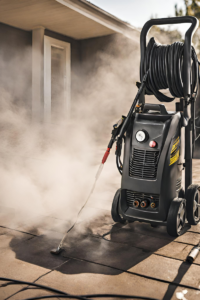
Yes, electric pressure washers can overheat due to ambient temperature and extended use. When the motor is running and water is not being sprayed, the pump can overheat. However, electric pressure washers have an automatic switch that stops the motor from running the pump, preventing the motor and pump from overheating when turned on and not being sprayed.
Gas-powered pressure washers, on the other hand, have a thermal release valve that releases water from the pump when it reaches a specific temperature to keep the pump from overheating.
Can Electric Motors Overheat?
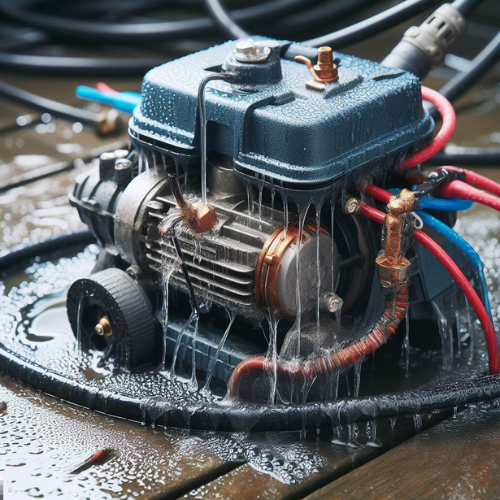
Yes, electric pressure washer motors can overheat if used improperly or in hot conditions. The motor has a thermal overload protector that is designed to automatically cut power if it overheats. This prevents damage to the motor windings from excessive heat buildup. However, repeated overheating cycles still strain the motor over time. Factors that contribute to an electric pressure washer motor overheating include:
- High ambient air temperature: Direct sunlight heats the motor housing and strains internal components.
- Inadequate ventilation: Blocking air intakes or using in confined spaces reduces cooling airflow.
- Extended run time: Continual use without breaks prevents heat dissipation.
- Low water supply: Insufficient water flowing over the pump causes overheating.
- Clogged spray nozzle: Restricted output overworks the electric motor.
- Exceeding duty cycle: Going beyond recommended operating times strains the motor.
Gas-powered pressure washers manage heat differently. They have a thermal relief valve on the pump head that automatically dumps water if it gets too hot. This cools the pump directly rather than relying on the overloaded electric motor cut-off.
Preventing Electric Pressure Washer Overheating
Here are tips to avoid overheating issues when using an electric pressure washer:
- Use in cooler conditions: Avoid direct sun which heats the motor housing. Clean in the shade or when temperatures are lower.
- Take frequent breaks: Allow the motor to cool for a few minutes after every 20-30 minutes of use.
- Ensure adequate water flow: Use at least the minimum flow rate for the pressure washer model. Check the supply hose for kinks or blockages.
- Use the largest nozzle: Larger nozzle openings place less stress on the motor. Don’t use narrow high-pressure tips for extended times.
- Check nozzle opening: Remove any obstructions and clear clogs so water can flow freely.
- Coil hose loosely: Tight hose coils restrict water flow, leading to overheating.
- Clean air intake: Keep motor fan air intake clear of dust, mud, and debris.
- Avoid confined spaces: Allow proper airflow and ventilation during use.
- Stay within duty cycle: Don’t exceed the recommended running time per hour. Take cooldown breaks.
- Check water screen/filter: Clean regularly to prevent flow restrictions.
- Ensure adequate voltage: Low voltage strains the electric motor.
- Keep it serviced: Well-maintained pressure washers avoid overheating risks.
Following the manufacturer’s instructions is key to preventing overheating issues. Don’t overlook critical factors like sufficient water supply, duty cycle limits, and extension cord requirements.
How Long Can You Continuously Run a Pressure Washer?
The duration for which you can continuously run a pressure washer depends on the model and type of the machine. Here are some general guidelines:
- Gas-powered pressure washers can typically run for about 30 minutes before they need a break.
- Electric models can usually go for an hour or more.
- Hot water pressure washers need to be given breaks more frequently, about every 15 minutes.
- Most professionals recommend operating a pressure washer in intervals of 3-5 minutes, followed by a complete shut-off to allow the machine to cool down.
How Long Can You Run a Pressure Washer Without Water?
You should never run a pressure washer without water. Doing so can cause damage to the pump and motor. Generally speaking, you should only run a pressure washer for about 5 minutes without water. This will give the pump time to cool down and avoid any damage.
Warning Signs of an Overheating Electric Pressure Washer
Watch for these indications your electric pressure washer may be overheating:
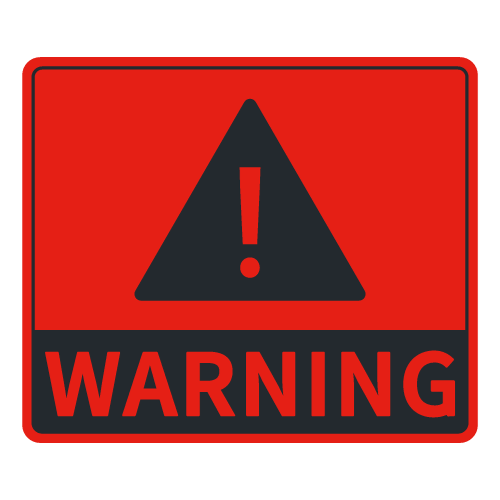
- Motor repeatedly stalling: Automatic reset may trip repeatedly under heavy loads.
- Reduced cleaning power: The motor can’t achieve full pressure due to heat strain.
- Higher operating noise: motors sound strained under excessive load.
- Increased vibration: heat stresses the motor and causes shaking.
- Burning smell: overheating electrical insulation gives off a distinctive odor.
How Long Should an Electric Pressure Washer Run?
Most electric pressure washers have a recommended duty cycle, which is the maximum running time per hour or day. Exceeding this strains the motor through overuse and not allowing sufficient breaks for heat dissipation. Typical duty cycles are 20–30 minutes per hour of use. After each duty cycle, allow the pressure washer to rest for 15–30 minutes. This prevents cumulative overheating damage during extended cleaning jobs.
Also, follow any guidelines for maximum runtime per day. This may range from 1-3 hours total depending on the model. Restricting total daily use gives the components prolonged rest intervals to keep internal temperatures under control.
For continuous cleaning over long periods, a gas-pressure washer may be a better choice. Their separate pump motors distribute heat and allow virtually continuous run times if needed. Just be sure to take short breaks to prevent the pump itself from overheating.
Conclusion
Electric pressure washers provide outstanding convenience and cleaning capabilities. However, their electric motors generate significant heat that can be exacerbated by high ambient temperatures, insufficient airflow, inadequate water flow, or exceeding recommended duty cycles.
Monitoring warning signs and following usage guidelines protect electric pressure washers from overheating damage. Simple measures like operating in the shade, frequent breaks, and preventing nozzle clogs go a long way. Well-maintained electric pressure washers will provide years of reliable service. However, disregarding heat buildup risks can shorten their lifespan through failure. Treat your electric pressure washer right by keeping it cool, and it will deliver peak cleaning performance job after job.
